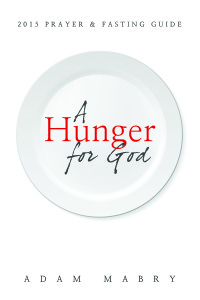The crazy culture of Christian criticism has to stop.
Alan Noble recently wrote a piece on the Evangelical Persecution Complex — essentially offering insight into our odd, self-identification as people under persecution. It seems to me, however, that given the regular number of hit pieces from Christian leaders on other Christian leaders, we like to dish out the hate about as much as we take it.
That is a problem. And, it's probably sin.
"But Adam," you say, "some Christian leader that I vaguely dislike is being scorched online. I need to let all my friends (most of whom aren't Christians) know that I have a disagreement with this fellow." Well, that's a pretty compelling reason to cheer on his or her public demise, isn't it? Oh wait, no. No it's not.
Not surprisingly, we're not the first generation to vent our intramural disagreements outside the walls of fellowship. The Corinthians did it too. And when Paul found out, he was so thrilled about it that he wrote this encouraging little "ataboy" to them:
When one of you has a grievance against another, does he dare go to law before the unrighteousinstead of the saints? I say this to your shame. Can it be that there is no one among you wise enough to settle a dispute between the brothers, but brother goes to law against brother, and that before unbelievers? To have lawsuits at all with one another is already a defeat for you. Why not rather suffer wrong? Why not rather be defrauded? (1 Cor 6:1, 5-7)
To answer Paul's rhetorical question, we would rather not suffer wrong because we don't believe him. We don't believe that it might be better to be quiet publicly about our offense with someone else. We do what the Corinthians did — we air our grievances against our brothers and sisters outside the family. This is, according to the Spirit who I believe inspired this text, to our shame.
"But Adam," you might protest, "someone needs to let the world know these people are wrong!" I get that. I get that from the inception of the church, Christian leaders have had to fend off heretics, rebuke the wolves in sheeps' clothing, and all the rest. I'm not suggesting we stop defending against bad doctrine. But the social media feeding frenzy that occurs when a leader screws up is nothing like Iraneaus' Against Heresies, for example. You aren't Augustine battling Pelagius. You have a Facebook page. Settle down.
Not one to simply complain, let me suggest five ways we can kill the Christian criticism culture, and just act like Christians:
1. When You Have a Problem with Someone you Know, Have the Guts to Tell Them, Not the Internet.
Crazy idea, right? But go with me for a minute.
I pastor a growing church in Boston and Cambridge, MA. I preach a lot, which means I offend people. One of my favorite things in the world, however, is when someone in our church loves me enough to tell me about it. I feel so loved! So cared for! Why? Because someone in my very own church had the guts to have an uncomfortable conversation with me for my good, and the good of the church. They didn't blog about it, tweet it, snapchat it, or make it a "prayer request" (which often is a Christian euphemism for gossip). They just put on their big kid britches and acted like a Christian.
2. When You Have a Problem with Someone You Don't Know, Have the Character to Pray for Them, Forgive Them, and Reach out to Them if you Can
I disagree with all kinds of Christians leaders all the time. I read their books and hear their sermons with reactions ranging from, "Hmm, I wouldn't have said it that way," to "Heresy!!" So what's a Pastor like me to do? Whatever I should be doing, I almost certainly shouldn't be echoing the stories of their humiliation in public. I most definitely shouldn't be jabbing them with my most pithy and piercing 140-character line. And, I certainly shouldn't be merrily celebrating their problems in front of a world that watches how Christians treat each other.
I probably should pray for them. And I try to, I really do. I want the current Christian rockstars to look progressively more like Jesus. But when Mark Driscoll, Rob Bell, John Piper, N.T. Wright, Pope Benedict, Brian McLaren, Tim Keller, Bill Johnson, T.D. Jakes, or anyone else of the Pro-Preacher class have a problem in public, we should not be among the crowd chanting "Fight! Fight! Fight!" like adolescents in the school yard. We should weep. We should pray. If we know them, we should call. And, we should hope to God in Heaven that some of them will call each other, too.
3. For Sake of the Gospel, Stop Reposting, Retweeting, and Otherwise Dancing Around the Graves of Fallen Christian Leaders by Echoing the Stories of their Screw Ups
I wonder if there is nothing left of the fear of the Lord in us. Does no one remember the story of Noah's kids? Go back and read it. God's not cool with publicly shaming his people — especially when his people shame each other. We don't need to echo the horrible stories of someone else's sin. We should be telling good stories of gospel glory, not salivating over the demise of a popular preacher we don't like very much. That impulse is called hatred. It is to be avoided.
Just stop doing it. With the measure you use it will be measured back to you. Think about that before you hit the repost button next time.
4. Be Free from the Obligation to Judge
I think it wonderful news that I do not need to judge other leaders. Jesus will hold me responsible for my family, my leadership, my words, and my church. Mine. He will not hold me responsible for anyone else's. Therefore, I do not need to be in charge of the social media trial and execution of anyone. I don't even have to show up for it. I can just ignore it. When a whiff of weirdness comes across my nostrils from another leader, I can call them, pray for them, and then trust Jesus to govern his church just fine. It's really quite freeing.
5. For the Love of God, Celebrate the Good
Because it's not my job to judge another man or woman's work, I'm actually free to appreciate the grace of God in them, despite them. Do you get how great this is? That means I can appreciate my favorites and my not-so-favorites amongst the Pastoral Illuminati, by God's grace. I can actually look at someone with whom I wildly disagree and honor God's grace in them enough to be private and discreet about my problem with them. How lovely.
Let's all join together and kill the Christian criticism culture. If we could, that would be a great story to retweet, and an entirely appropriate grave around which to dance.
 I wrote a little book about fasting and prayer.
Each year, our church takes about 7 days at the beginning of the year to fast together, pray together, and seek God together. We do this in our small groups, as a church family, and individually because if we're going to fish for men and women then we have to follow Jesus. If we're going to love our neighbor then we've got to love God. And, if we're going to show the world how great Jesus is, then we must be progressively transformed into the likeness of his image.
I wrote a little book about fasting and prayer.
Each year, our church takes about 7 days at the beginning of the year to fast together, pray together, and seek God together. We do this in our small groups, as a church family, and individually because if we're going to fish for men and women then we have to follow Jesus. If we're going to love our neighbor then we've got to love God. And, if we're going to show the world how great Jesus is, then we must be progressively transformed into the likeness of his image.





 No has fallen on hard times lately.
No has fallen on hard times lately.